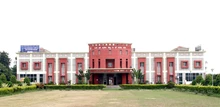
A two-day National Workshop titled "Finalization of Revised & Updated Manual on Water Supply and Treatment" was successfully organized by the Central Public Health and Environmental Engineering Organization (CPHEEO) in collaboration with Deutsche Gesellschaft für Internationale Zusammenarbeit (GIZ) at Vigyan Bhawan in New Delhi.
The workshop aimed to gather valuable insights and feedback from state cities and other stakeholders regarding the contents of the manual. The inaugural session of the workshop was chaired by Manoj Joshi, Secretary of the Ministry of Housing and Urban Affairs. The welcome address was delivered by Dr. M. Dhinadhayalan, Adviser (PHEE) at CPHEEO, and D. Thara, Additional Secretary & National Mission Director (AMRUT), delivered a special address.
The existing Manual on Water Supply and Treatment, published in 1999, along with the Operation and Maintenance manual from 2005, has served as guidance documents for planning, designing, and implementing urban water supply systems under various programs, including AMRUT, AMRUT 2.0, and state plan funds.
Recognizing the need to address the challenges in the urban water supply sector and incorporate technological advancements, the Ministry of Housing and Urban Affairs decided to revise and update the existing Water Supply & Treatment Manual. To accomplish this, an Expert Committee was constituted under the chairmanship of the Adviser (PHEE) at CPHEEO, in coordination with GIZ. WAPCOS, appointed by GIZ, acted as the Study Team responsible for drafting the manual. The draft manual was divided into three parts: Engineering, Operation and Maintenance, and Management. It was approved by the Expert Committee and reviewed by water experts from the United States.
The revised manual provides guidelines for planning and designing water supply systems based on operational zones and District Metered Areas (DMAs). It aims to improve water supply services in intermittent water supply systems and gradually transition to a 24x7 water supply with a "Drink from Tap" facility. Additionally, the manual offers guidelines for planning, designing, operating, maintaining, and managing water supply systems using GIS hydraulic modeling. It covers various aspects, including water treatment technologies for different raw water qualities, water quality monitoring protocols, SMART water solutions, operation and maintenance guidelines, financial and asset management, stakeholder engagement, public-private partnerships, and climate-resilient water supply systems.
In his keynote address, Manoj Joshi, Secretary of the Ministry of Housing and Urban Affairs, stressed the importance of providing safe and reliable drinking water that meets BIS water quality standards to every urban household in the country. He highlighted the financial burdens faced by households due to coping costs, such as investing in storage facilities or household treatment plants like RO. Secretary Joshi emphasized the need to supply water directly to households 24x7 to eliminate the need for additional storage, which can lead to water deterioration and financial losses. He expressed his belief that the revised manual, incorporating the latest technologies and design procedures after 25 years, will prove beneficial for states and urban local bodies (ULBs).
During her special address, D. Thara, Additional Secretary & National Mission Director (AMRUT), suggested including the design of water supply systems for slum areas, mapping human resources with the water supply system, and promoting women's empowerment in the water sector. Laura Sustersic, Project Director- India EU Water Partnership at Deutsche Gesellschaft für Internationale Zusammenarbeit (GIZ) GmbH, emphasized the importance of addressing gender aspects within the scope of the manual during her address.
The conference was attended by technical heads, chief engineers, city engineers, and senior engineers involved in water supply management in all cities, as well as representatives from Public Health and Engineering Departments (PHEDs), corporations, boards, Jal Nigams, experts, PPP partners, manufacturing firms, and consultants. Approximately 300 participants actively took part in the workshop.











